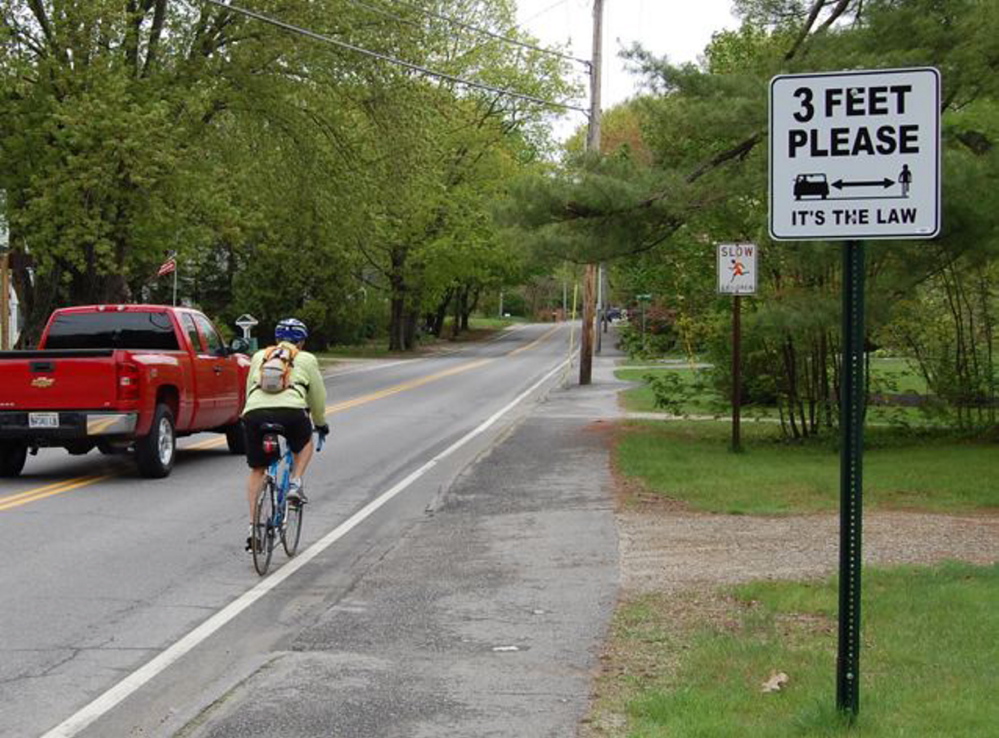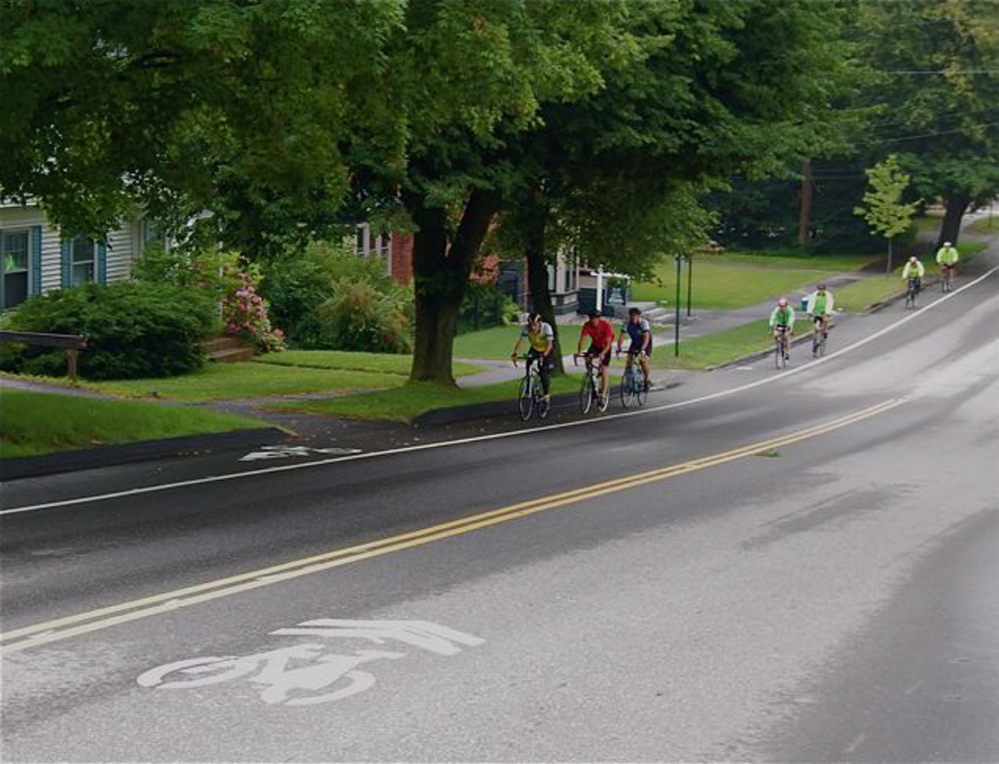William Wilkoff marks the changing attitudes toward bicycling in Brunswick by looking at his own family. When his children were in elementary school a generation ago, they pooh-poohed the idea of commuting by bike. “Dad,” they told him, “No one does that!”
Now, two of his grandchildren bike regularly to Harriet Beecher Stowe Elementary School, and they have lots of company. One day last June, nearly a quarter of the students arrived on bike.
Wilkoff, who co-chairs the Brunswick Bicycle & Pedestrian Advisory Committee, describes the change as “dramatic and heartening.”
Brunswick’s efforts to encourage bicycling helped it become Maine’s first nationally recognized Bicycle Friendly Community in 2005. A decade later, Brunswick and neighboring Bath are the only communities in the state to achieve that designation from the League of American Bicyclists. Their efforts to improve bicycling also have created better conditions for pedestrians and people with disabilities.
There’s nothing particularly flashy about the area that advertises it as a bicycling hot spot. But look closely, and you will see many small signs of progress.
Brunswick recently added a bike lane and sharrows on Federal Street, which runs parallel to the main business district. (Sharrows are pavement markings alerting motorists that bicyclists can ride in the full lane.) The Federal Street improvements are part of a larger effort to provide cyclists and pedestrians with safer access to downtown.
Several crashes involving cyclists led Brunswick police to step up enforcement of Maine’s 3-foot law. Brunswick was the first community in Maine to post signs notifying motorists about the law, which requires them to give at least 3 feet of clearance when passing bicyclists.
One day each spring, Brunswick’s Walmart parking lot is transformed into a bicycle safety course. Children hone their biking skills, get safety checks for their bicycles and get fitted for free bicycle helmets provided by the Rotary Club.
Bicycle-pedestrian committee members helped identify the safest routes for children to bike or walk to local schools. The town is installing flashing lights at four key crosswalks along those routes. Every student at Harriet Beecher Stowe Elementary School takes a bicycle safety class each year.
Bath’s citywide effort to improve bicycling began about six years ago.
Among the ideas launched there was a Get Back on Your Bike class for adults who knew how to ride but had stopped doing so. Students from their 40s to 70s reviewed rules of the road, learned about bicycle maintenance and took practice rides together.
Perhaps Bath’s most significant achievement was adoption of a Complete Streets policy earlier this year.
The policy ensures that the needs of cyclists, pedestrians and people with disabilities are considered whenever Bath undertakes a road project. The benefits of Complete Streets are taking shape on North Street, as the city narrows vehicle lanes, installs new sidewalks and paints sharrows.
I recently met with Kevin Shute, chair of Bath’s Bicycle and Pedestrian Committee, and Rich Cromwell, co-chair of the Brunswick bicycle-pedestrian committee. Here is some advice, gleaned from their experiences that could help other communities improve cycling conditions.
• Gather a dedicated group of people to work on bicycle and pedestrian issues. Seek support from local businesses, land trusts, health organizations and other partners.
Bath and Brunswick are fortunate to have a local bicycle club, the Merrymeeting Wheelers, that pitches in on lots of projects. Club members conduct bikeability audits of Brunswick streets to identify maintenance needs. They helped rebuild Bowdoin College’s old bicycle racks and install others throughout Brunswick. In Bath, the club paid for and installed signs about the three-foot law.
• Create a plan for bicycle and pedestrian improvements, and review it regularly. Tell the community what you’ve accomplished.
• Involve local officials. Bath’s police chief and a city councilor both serve on the city’s bicycle-pedestrian committee. The directors of public works, planning and development, and parks and recreation all attend meetings regularly. That helps keep them abreast of major issues involving cycling.
• Tap all available grants, technical help and other resources.
• Learn from your mistakes, and try a different approach.
Brunswick’s bicycle-pedestrian committee “got slapped down pretty hard” when it tried to win approval for bicycling improvements on Maine Street, in the middle of downtown, Cromwell said. Business owners objected strongly to losing parking spaces, he said.
In retrospect, Cromwell believes that business owners should have been consulted earlier about the project. The committee decided to shift its efforts to two streets running parallel to Maine Street on either side of downtown.
• Keep trying to improve.
Brunswick’s bicycle-pedestrian committee set a simple goal: They want children of middle-school age to feel safe riding anywhere in town. “It’s a tough test to pass,” admits Cromwell. But he sees “slow but sure” progress.
Shoshana Hoose is a freelance writer who bicycles in Greater Portland and beyond. Contact her at shoshanahoose@gmail.com.
Send questions/comments to the editors.




Comments are no longer available on this story